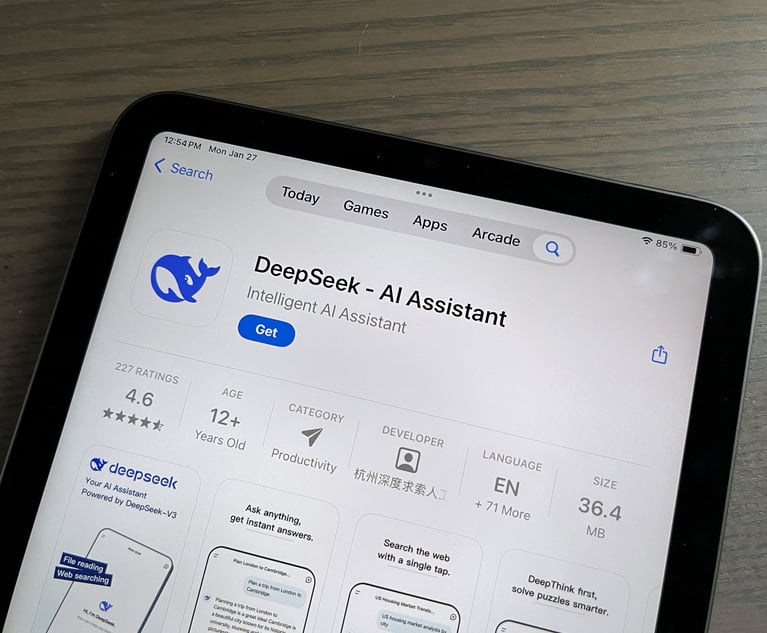 Zaneta Seidel, partner at Oppenheimer Investigations Group. Courtesy photo
Zaneta Seidel, partner at Oppenheimer Investigations Group. Courtesy photo Navigating the Aftermath of a Workplace Investigation: Post-Investigation Strategies to Help Improve Work Culture
Thoughtful employers also work to address the lingering tensions that can exist post-investigation and stand in the way of restoring a positive work environment.
July 15, 2024 at 01:00 PM
5 minute read
The Fair Employment and Housing Act (FEHA) requires California employers to conduct a timely, thorough and objective investigation into allegations of discrimination, harassment, retaliation, workplace violence and threats thereof. An employer can fulfill this mandate by conducting, or retaining an independent attorney investigator to conduct, an impartial factfinding inquiry to determine whether the reported conduct occurred, and if so, what factors likely motivated it (e.g., the reporting party's age, race, gender, sexual orientation, or protected activity, etc.). However, meeting this legal obligation is only the first step. Thoughtful employers also work to address the lingering tensions that can exist post-investigation and stand in the way of restoring a positive work environment.
After an investigation, the employer typically reports the findings to the parties involved and decides what, if any, corrective action should be taken. Because workplace investigations can involve complicated issues and events that people perceive and remember differently, and the findings are often mixed where some allegations are substantiated and others are not, one of the parties, or both, may be dissatisfied with the outcome of the investigation. Yet, the parties must often continue working together, navigating a now fraught relationship. Employees who either participated in the investigation as witnesses or heard rumblings about it through the rumor mill, may be impacted by the noticeable tension between the parties and may feel forced to pick sides. If left unaddressed, these tensions can lead to low morale, distrust of management, lack of faith in the organization as a whole and, ultimately, employee turnover.
This content has been archived. It is available through our partners, LexisNexis® and Bloomberg Law.
To view this content, please continue to their sites.
Not a Lexis Subscriber?
Subscribe Now
Not a Bloomberg Law Subscriber?
Subscribe Now
NOT FOR REPRINT
© 2025 ALM Global, LLC, All Rights Reserved. Request academic re-use from www.copyright.com. All other uses, submit a request to [email protected]. For more information visit Asset & Logo Licensing.
You Might Like
View All
The Time Is Now for Employers to Assess Risk of Employees’ Use of DeepSeek
4 minute read

California Court Denies Apple's Motion to Strike Allegations in Gender Bias Class Action
Trending Stories
- 1States Accuse Trump of Thwarting Court's Funding Restoration Order
- 2Microsoft Becomes Latest Tech Company to Face Claims of Stealing Marketing Commissions From Influencers
- 3Coral Gables Attorney Busted for Stalking Lawyer
- 4Trump's DOJ Delays Releasing Jan. 6 FBI Agents List Under Consent Order
- 5Securities Report Says That 2024 Settlements Passed a Total of $5.2B
Who Got The Work
J. Brugh Lower of Gibbons has entered an appearance for industrial equipment supplier Devco Corporation in a pending trademark infringement lawsuit. The suit, accusing the defendant of selling knock-off Graco products, was filed Dec. 18 in New Jersey District Court by Rivkin Radler on behalf of Graco Inc. and Graco Minnesota. The case, assigned to U.S. District Judge Zahid N. Quraishi, is 3:24-cv-11294, Graco Inc. et al v. Devco Corporation.
Who Got The Work
Rebecca Maller-Stein and Kent A. Yalowitz of Arnold & Porter Kaye Scholer have entered their appearances for Hanaco Venture Capital and its executives, Lior Prosor and David Frankel, in a pending securities lawsuit. The action, filed on Dec. 24 in New York Southern District Court by Zell, Aron & Co. on behalf of Goldeneye Advisors, accuses the defendants of negligently and fraudulently managing the plaintiff's $1 million investment. The case, assigned to U.S. District Judge Vernon S. Broderick, is 1:24-cv-09918, Goldeneye Advisors, LLC v. Hanaco Venture Capital, Ltd. et al.
Who Got The Work
Attorneys from A&O Shearman has stepped in as defense counsel for Toronto-Dominion Bank and other defendants in a pending securities class action. The suit, filed Dec. 11 in New York Southern District Court by Bleichmar Fonti & Auld, accuses the defendants of concealing the bank's 'pervasive' deficiencies in regards to its compliance with the Bank Secrecy Act and the quality of its anti-money laundering controls. The case, assigned to U.S. District Judge Arun Subramanian, is 1:24-cv-09445, Gonzalez v. The Toronto-Dominion Bank et al.
Who Got The Work
Crown Castle International, a Pennsylvania company providing shared communications infrastructure, has turned to Luke D. Wolf of Gordon Rees Scully Mansukhani to fend off a pending breach-of-contract lawsuit. The court action, filed Nov. 25 in Michigan Eastern District Court by Hooper Hathaway PC on behalf of The Town Residences LLC, accuses Crown Castle of failing to transfer approximately $30,000 in utility payments from T-Mobile in breach of a roof-top lease and assignment agreement. The case, assigned to U.S. District Judge Susan K. Declercq, is 2:24-cv-13131, The Town Residences LLC v. T-Mobile US, Inc. et al.
Who Got The Work
Wilfred P. Coronato and Daniel M. Schwartz of McCarter & English have stepped in as defense counsel to Electrolux Home Products Inc. in a pending product liability lawsuit. The court action, filed Nov. 26 in New York Eastern District Court by Poulos Lopiccolo PC and Nagel Rice LLP on behalf of David Stern, alleges that the defendant's refrigerators’ drawers and shelving repeatedly break and fall apart within months after purchase. The case, assigned to U.S. District Judge Joan M. Azrack, is 2:24-cv-08204, Stern v. Electrolux Home Products, Inc.
Featured Firms
Law Offices of Gary Martin Hays & Associates, P.C.
(470) 294-1674
Law Offices of Mark E. Salomone
(857) 444-6468
Smith & Hassler
(713) 739-1250







